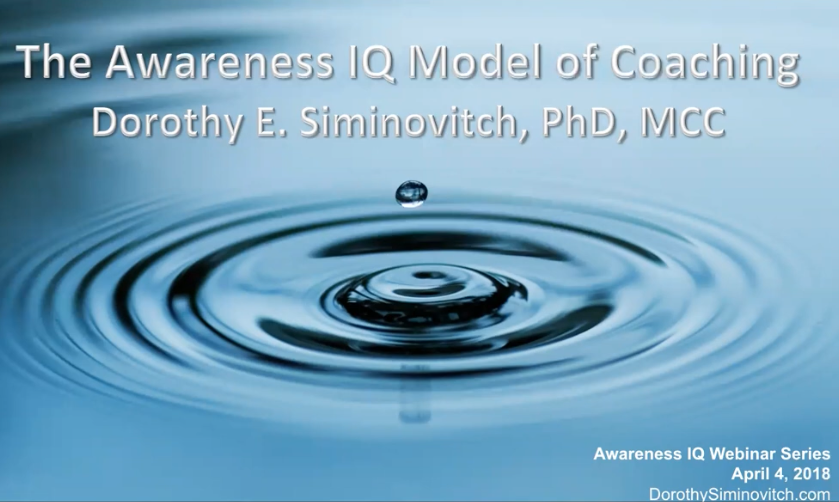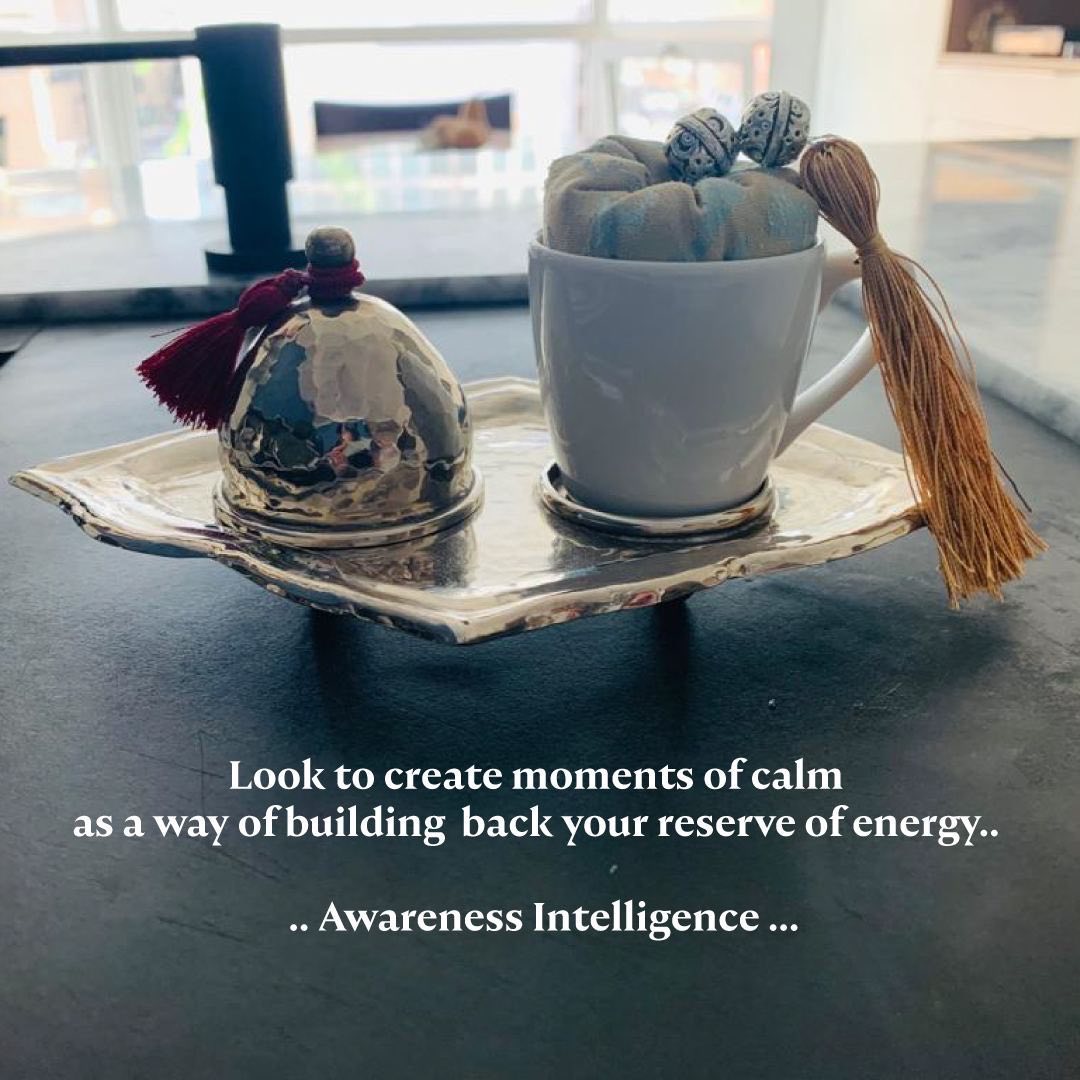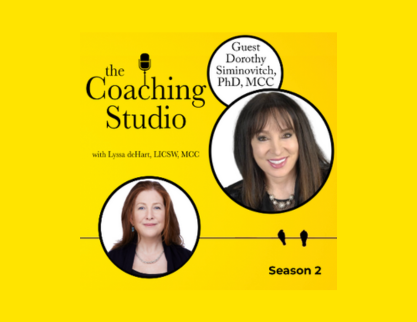A book must be the ax for the frozen sea within us. – Franz Kafka
Now that my book, A Gestalt Coaching Primer: The Path Toward Awareness IQ, has been published, I find myself thinking of Kafka’s quote and the reasons that drove me to write this book. I ask myself if I achieved what I intended to achieve. I ask myself if this contribution to the coaching literature will connect with and inspire interested readers. Launching A Gestalt Coaching Primer has brought an unexpected flood of memories along with new surprises.
One surprise is that people are now asking me for advice about writing, and I truly see myself as the last person to give such advice. All I can do is tell you what I’ve learned about the process:

Announce and talk about your topic, since an idea spoken aloud to others creates a sense of self-accountability, which helps sustain your energy to see it through. The more I told people I was writing a book, the more committed to the writing I became.
Find “thought partners” with whom you can discuss your ideas. Writing is a lonely process. You need time alone for reflection and for the writing itself, but you also need kind yet discerning eyes and ears to keep you clear and credible. My administrator and editor has a PhD in English and a grounding in Gestalt concepts and practice. I shared many ideas with her, and she gave me feedback on the writing as it progressed. Both speaking out ideas to another and getting feedback on one’s process and product as it happens are invaluable contributions.
Determine a suitable structure: Figure out a foundational outline that helps you think about the complexity of your topic in a focused, step-by-step but interconnected pattern. As I wrote my primer, the outline I most relied on was the order in which and how we teach Gestalt coaching in our Gestalt Center for Coaching ICF-ACTP programs, both the core Gestalt principles and models and how they are put into practice. Experience with what actually works is the most grounding and inspiring source, and the times when I was calling on such experiences led to the clearest sections of my writing.
Hire professional, reputable assistance for editing, designing, and formatting your book. You want what you’re saying to look as professional and reputable as you want it to sound. I used 1106 Design, led by Michele DeFilippo, and am pleased with the results.
Now that the book is finished and in print, I reflect on why I wrote it in the first place: to let readers know about the genuine “practical magic” of the Gestalt approach, in language that wasn’t filled with academic or Gestalt “jargon.” I wanted to untangle Gestalt coaching from the shadow of both Gestalt therapy and its cousin, Gestalt organizational coaching. I wanted colleagues and fellow practitioners to know that we at the Gestalt Center for Coaching are successfully teaching Gestalt coaching. I wanted all readers to know that Gestalt coaching has always been strongly rooted in awareness-based practices that people today are calling “mindfulness”—best defined by Jon Kabat-Zinn as “awareness that arises through paying attention, on purpose, in the present moment, non-judgmentally.” Certainly, I wanted my own voice to be heard, and not to be lost or “disappeared,” because now that Gestalt coaching is so successful, everyone is its champion.
I still vividly remember the astonishing moment when “Gestalt” and “coaching” came together for me as a unified personal and professional insight of what could be offered and developed. At the time, in the mid-1990s, few thought of coaching as a well-defined professional career. It was often associated with the vague concept of “life coaching”—no practice-specific credentials were required and anyone could “do it.” Coaching was deemed too “California,” a fad that would pass. But I deeply knew that coaching was something new and profound that would work in many different environments . . . and so it has. Twenty-some years later, coaching is a burgeoning professional field, requiring sought-after credentials from high-profile institutes.
And Gestalt coaching is a vital and influential approach within that field. Coaches, consultants, and leaders have embraced the Gestalt approach, and are achieving amazing personal and professional success by means of the collaborative, life-affirming qualities inherent to Gestalt’s theoretical and conceptual DNA.
While I was faculty at the Gestalt Institute of Cleveland, a lovely student in one of the clinical programs attended a Gestalt training session where I was teaching. She shared her frustrations with her graduate school program and her intention to drop out. I heard this as an “alarm” telling me that something more was going on, and I suggested less stressful options. Collaboratively, we successfully got her through her MA requirements. Though she left that program shortly after, she later resumed studies at another university and asked me to be on her PhD committee. I agreed to help, with the caveat that I only be her “cheerleader and coach,” not her “advisor.” And she did, indeed, receive her PhD.
My work with this person, and her ultimate and ongoing success, was my first confirming experience that Gestalt coaching was powerful and viable. I have since devoted myself to clarifying, developing, and evolving Gestalt as the most relevant, most efficient, and most effective approach for all forms of coaching, whether personal or executive, and whether for experienced or novice coaches. I am still fascinated with the profound ability of Gestalt coaching to reach across cultural and ethnic boundaries. I am immensely satisfied to know that Gestalt coaching meets the expectations of excellence and trustworthy credentialing of established and emerging prestigious companies around the world.
If you would like to know more about Gestalt coaching’s focus on awareness intelligence, embodied presence, and the strategic use of one’s presence, I invite you to watch a brief introduction to the concepts in my video.Understanding one’s presence requires self-awareness of one’s strengths and limitations as well as knowing what we evoke in others. In this sense, knowing about one’s presence is best learned in relationship to others. Both leadership and coaching practice have, in these last years, made presence and strategic use of self key to personal and professional mastery.
If you are further interested, consider purchasing A Gestalt Coaching Primer: The Path Toward Awareness IQ, available at Amazon and Amazon CreateSpace. Dedicating this book to my mother, and being able to put a published copy of it into her hands, has brought me a deep and poignant joy. But I will only know if I have achieved the goals I had for this book if I hear from my readers. Please leave a comment. I welcome and look forward to your feedback and commentary.




